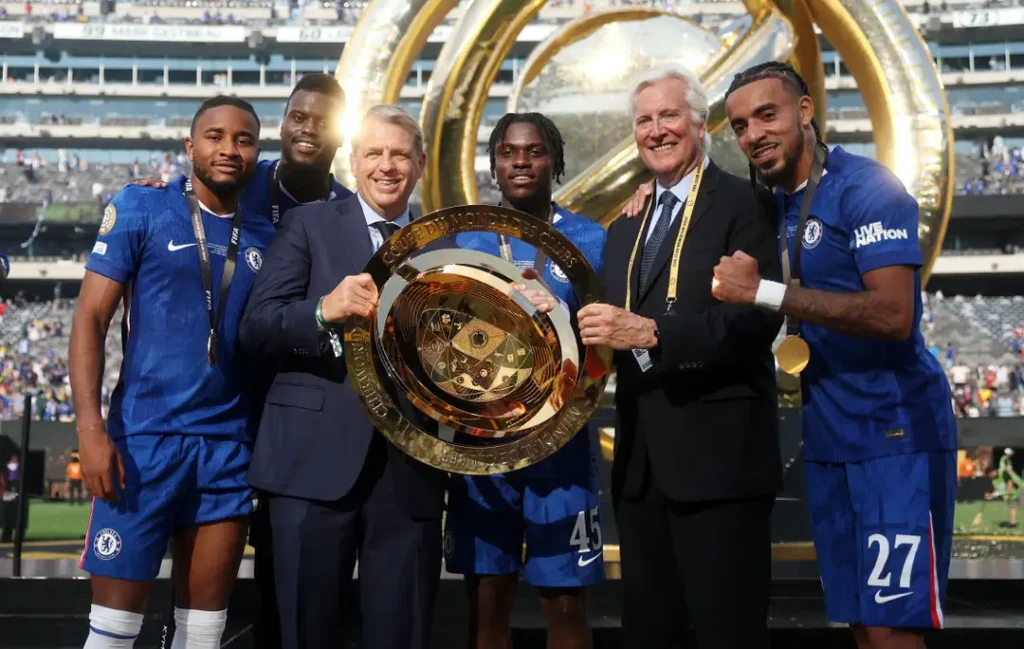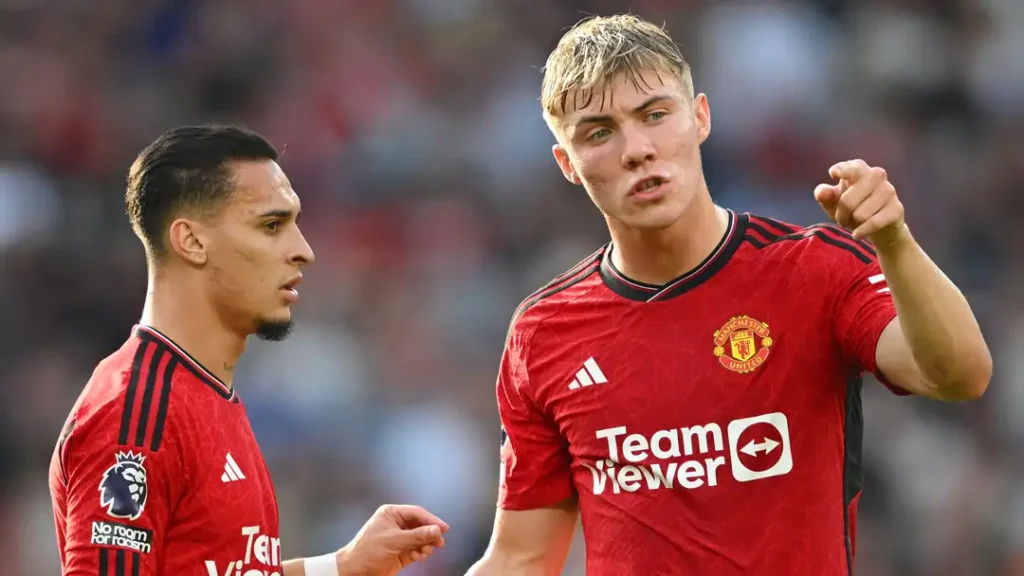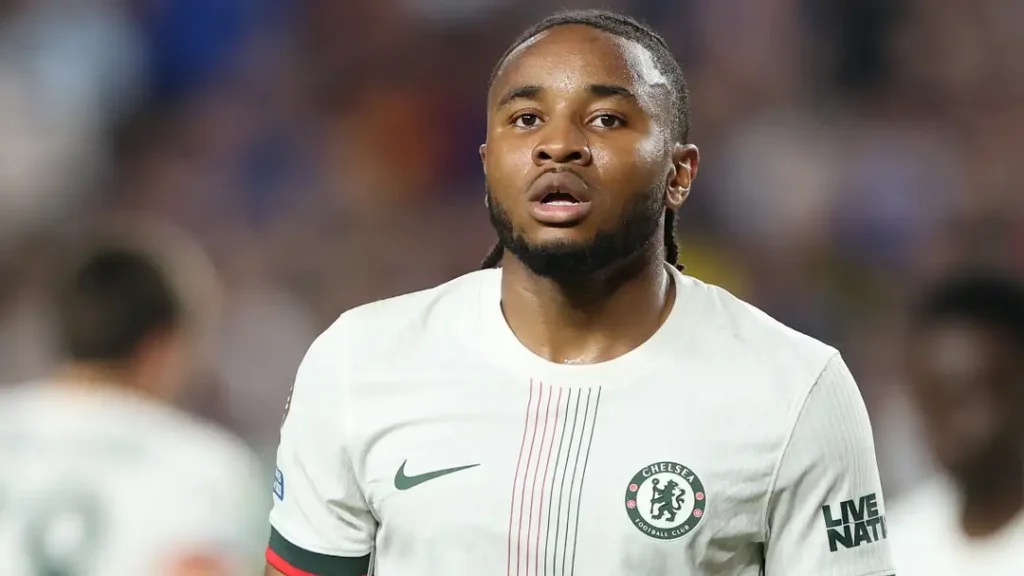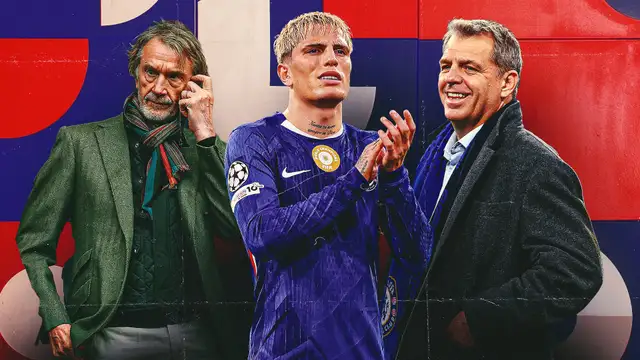Before Sir Jim Ratcliffe invested in Manchester United, he tried to buy Chelsea. Although he grew up on a council estate in Failsworth in north Manchester and attended games at Old Trafford with his father as a child, Ratcliife took a liking to Chelsea as an adult while living and working in affluent west London.
I have a house in Chelsea, I’ve lived in Chelsea for many years, I’ve had a season ticket for many years, I have a business that’s based in Chelsea,” Ratcliffe explained to the
at the time. “When I was living in London for many years, I could go and watch Chelsea. It was quite difficult to go and watch United, so I have split loyalties.
However, perhaps surprisingly for a man who built a petrochemicals empire and was at one point the richest person in Britain, Ratcliffe made a rather basic mistake: he submitted his £4.25 billion ($5.79bn) bid six weeks after the deadline set by Raine, the bank negotiating the sale.
However, perhaps surprisingly for a man who built a petrochemicals empire and was at one point the richest person in Britain, Ratcliffe made a rather basic mistake: he submitted his £4.25 billion ($5.79bn) bid six weeks after the deadline set by Raine, the bank negotiating the sale.
“My message to Raine is don’t discount our offer,” Ratcliffe pleaded. “We are British and have great intentions for Chelsea. If I was Raine I wouldn’t close any door.” His message proved to be in vain, however, as INEOS later revealed that Raine dismissed the bid “out of hand” before accepting the one from the consortium led by American billionaire Todd Boehly.
Just 18 months later, Ratcliffe completed his 27 percent stake in United and now he and Boehly are direct competitors. They have each taken their fair
as well as the media. For Ratcliffe, the onslaught of criticism has spoiled his much-loved morning routine of reading the newspapers.
He could take a leaf out of the book of Boehly, who recently explained how he copes with scrutiny: “The reality is that the sooner you learn you can’t keep everyone happy all the time, then freedom comes from that.” There is another area where Ratcliffe could learn from Boehly: the art of selling players.

From ridicule to respect
Boehly was the subject of much ridicule in his first season running Chelsea, partly for his whacky ideas such as a North vs South ‘All-star’ game or relegation play-offs but mostly for his approach to transfers. Appointing himself as sporting director, Boehly acted like he wanted to buy every player in the world and splashed a barely believable £747m ($1 billion) in his first 12 months.
He took a wild approach to appointing coaches too, firing Champions League-winning Thomas Tuchel after less than two months and then sacking his successor Graham Potter less than seven months later. He then hired Frank Lampard, who had been dismissed by Chelsea two years earlier, on the advice of comedian James Corden, with predictably terrible consequences. The club’s lavish spending on players continued in his second year in charge but results continued to disappoint.
Chelsea’s decision to get rid of Mauricio Pochettino just as things were starting to look up led to more criticism of Boehly, but events of the last year have changed how Chelsea and their owner are viewed. The Blues finished fourth in the Premier League to book their ticket back to the Champions League and in July they became world champions.
After destroying treble winners Paris Saint-Germain in the final in New York, coach Enzo Maresca gave a message of defiance: “They were saying that we are too young, we are not good enough. Unfortunately for them, they have been all wrong…. So, in English, how do you say? Eff-off to all of them.”

Showing United how it’s done
Boehly would have been entitled to agree with his coach and now the venture capitalist’s grand transfer plan is starting to make sense. Chelsea spent £285m ($388m) this summer, a figure only topped by Liverpool. But the outlay to sign 10 new players for Maresca was handsomely offset by sales of £288m ($392m) while getting rid of 15 players.
It meant they had the sixth-lowest net spend in the league. Contrast that with Ratcliffe’s United, who spent £216m ($294m) on five new players and received £68m ($92m). Their net spend came in at £148m ($201m), the third highest in the league behind Arsenal and Liverpool. But the squad Ruben Amorim has been left with looks ill-equipped, lacking at least one if not two capable midfielders and a proven goalkeeper.
Of particular concern was United’s inability to shift players as the clock ticked towards transfer deadline day. They could only find loan deals for Andre Onana, Rasmus Hojlund and Jadon Sancho – who had cost a combined £195m ($265m) – and Marcus Rashford, who just two years previously had scored 30 goals in a season and signed one of the most lucrative contracts in the club’s history.
United sold just two of the so-called bomb squad players that everyone knew they were looking to shift. Antony went to Real Betis for £21m ($28.5m), a quarter of the price United paid to get him from Ajax in 2022.

The Nkunku paradox
United were at least glad when they convinced Chelsea to pay £40m ($54m) for Alejandro Garnacho, who became the club’s fourth biggest sale ever. But the club had entered the window hoping to get £60m ($82m) for the Argentina international, eventually dropping their asking price by a third for a player who had scored 26 goals and made 22 assists and who only turned 21 in July.
The two club’s differing aptitudes in the selling market can be seen in the deals for Rasmus Hojlund and Christopher Nkunku. The French forward’s career with Chelsea was hugely disappointing and had gotten off to a nightmare start, injuring his knee in a pre-season friendly just weeks after completing a £52m ($71m) move from RB Leipzig.
He made only 11 league starts in two years, scoring six goals. But Chelsea still managed to negotiate his departure for AC Milan in a deal worth £34m ($46m). Hojlund, a £72m ($98m) signing in the same summer, started 48 games and scored 14 goals. And yet there were no takers for the Dane, who joined Napoli on loan on deadline day in a deal that could see him move to the Serie A club permanently next summer for £36m ($49m). Hojlund is five years younger than Nkunku.

